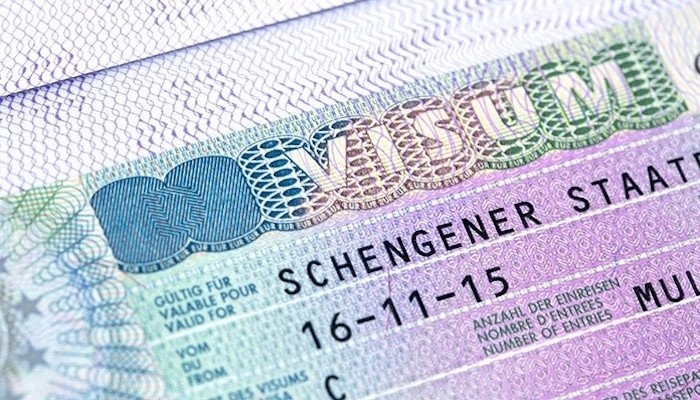The European Union has introduced easier Schengen visa procedures for Turkish nationals with a record of lawful travel, granting access to longer-term multiple-entry visas under new rules adopted on July 15, the BBC News Turkish service reported on Friday.
The European Commission announced that the changes apply to Turkish nationals residing in Turkey who have previously obtained and legally used short-term Schengen visas. Under the new framework, eligible applicants can now receive multiple-entry visas beginning with six-month validity on their second application, extending to one, three and eventually five years, depending on their travel history.
According to the commission’s guidelines, the revised rules aim to reward “bona fide” applicants who pose minimal migratory and security risks, while also reducing the administrative burden on EU consulates amid a surge in visa requests.
Visa validity remains tied to passport expiration: Schengen visas will not be issued beyond a passport’s expiry date and must expire at least three months before the passport does. The updated system covers 25 Schengen member states, including Germany, France, Italy, and Spain, but excludes professional categories such as truck drivers and non-Turkish nationals residing in Turkey.
‘Cascade Rule’ to guide longer visas
The regulation stems from the European Commission’s June 26, 2024, annex to the Visa Code Handbook, which introduces the so-called “Cascade Rule.” The rule provides for gradually extended visa durations based on an applicant’s history of lawful use, but with a case-by-case evaluation. Officials have clarified that the rule is not automatic and that exceptions may apply.
Ankara welcomes decision, pushes for more
Turkish Trade Minister Ömer Bolat welcomed the move, calling it “a facilitation that our citizens have been awaiting for a long time,” according to remarks published by the state-run Anadolu news agency. He added that Turkish authorities and the European Commission would continue efforts to secure broader visa liberalization.
Bolat also reiterated Ankara’s interest in launching talks to modernize the customs union with the EU and expand its scope to include services and e-commerce.
Speaking in Ankara EU Ambassador to Turkey Thomas Hans Ossowski said the new rules would ease travel for Turkish citizens but cautioned that the measure does not resolve long-standing visa challenges.
“Every other candidate country has visa-free travel except Turkey. It is urgent to re-engage in this process of visa-free travel in the Schengen space and the EU,” Ossowski said.
He added that the European Commission is prepared to resume formal negotiations with the Turkish the government after the summer to help fulfill the six remaining benchmarks required under the visa liberalization roadmap.
Longstanding dialogue, limited progress
Turkey and the EU have been engaged in a Visa Liberalisation Dialogue since December 2013, which outlines 72 benchmarks that Turkey must fulfill in order to qualify for visa-free travel within the Schengen area. According to official EU progress reports, the six remaining benchmarks primarily focus on politically sensitive areas, including ensuring effective cooperation with Europol, revising Turkey’s broad counterterrorism legislation in line with European standards, strengthening personal data protection, adopting measures against corruption, establishing judicial cooperation with all EU member states and aligning certain judicial practices with EU human rights norms.
Visa demand still high despite frustrations
Despite the new reforms, frustration over the Schengen process remains widespread in Turkey, fueled by long delays and rising rejection rates in recent years.
In 2024 Turkey ranked second among all Schengen visa applicant countries, with more than 1.17 million applications, according to EU statistics. More than 1 million were approved, while the refusal rate dropped to 14.5 percent, down from 16.1 percent in 2023.
Foreign Minister Hakan Fidan has criticized the current system for restricting mobility and harming EU–Turkey relations. Ankara continues to push for the full revival of the visa liberalization process as part of broader efforts to improve ties with Brussels.

